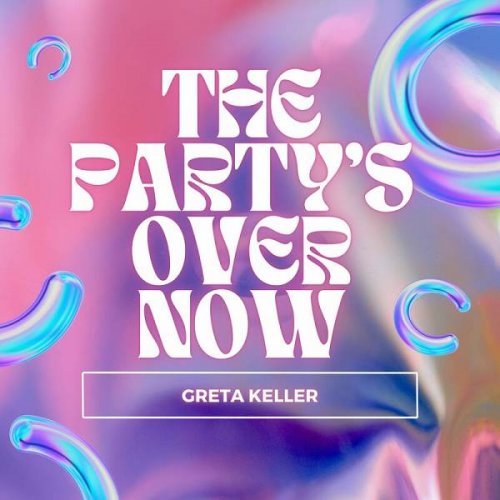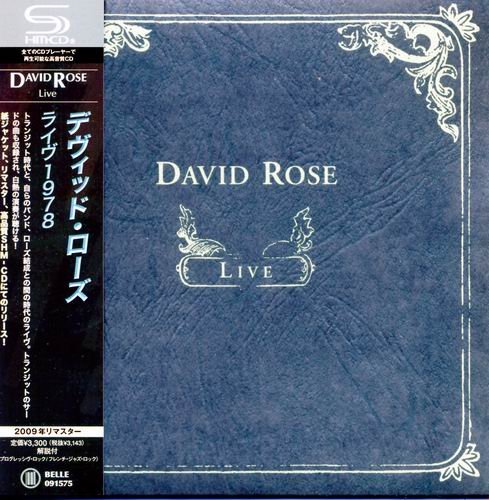New Zealand Symphony Orchestra & James Judd - Copland: Billy the Kid Suite & Symphony No. 3 (2014) [Hi-Res]
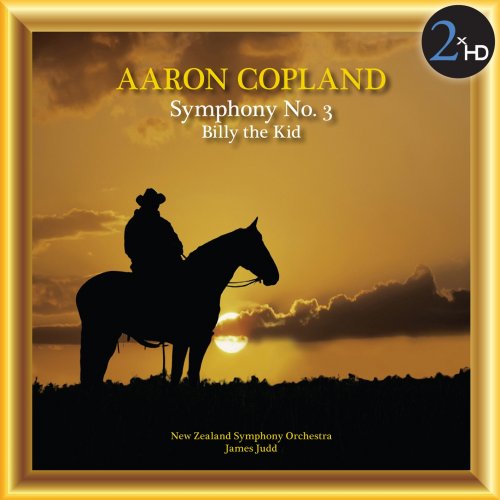
Artist: New Zealand Symphony Orchestra, James Judd
Title: Copland: Billy the Kid Suite & Symphony No. 3
Year Of Release: 2001 / 2014
Label: 2xHD - Naxos
Genre: Classical
Quality: FLAC (tracks, booklet) [44.1kHz/24bit]
Total Time: 1:04:25
Total Size: 601 MB
WebSite: Album Preview
Tracklist:Title: Copland: Billy the Kid Suite & Symphony No. 3
Year Of Release: 2001 / 2014
Label: 2xHD - Naxos
Genre: Classical
Quality: FLAC (tracks, booklet) [44.1kHz/24bit]
Total Time: 1:04:25
Total Size: 601 MB
WebSite: Album Preview
Aaron Copland (1900-1990)
1 Billy the Kid Suite 21:20
Symphony No. 3
2 I. Molto moderato 10:43
3 II. Allegro molto 07:54
4 III. Andantino 11:23
5 IV. Molto deliberato 13:10
Copland composed his hugely popular ballet Billy the Kid in Paris and Peterborough during the summer of 1938. The first performance was in an arrangement for two pianos that same year, and it was only a year later that the full orchestral version was given in New York to great critical acclaim. The suite on this recording dates from 1940.
With its vivid descriptions of the American prairies and remote border towns complemented by the brash and violent sounds depicting the famous outlaw William H. Bonney (1859-1881), the ballet has retained its freshness and excitement, and remains one of the composer’s most performed stage-works.
The Third Symphony is cast in the traditional four movements but has no specific narrative programme. Essentially American in its thematic suggestions of folk-song, the work is considered to be Copland’s most imposing creation for orchestra and even earned him the New York Music Critics’ Circle award for the best orchestral work of the 1946-47 concert season.
"Two Copland masterpieces in superbly idiomatic performances-a must buy. The verdict on this efficient and sympathetic performance of the symphony will be a affected by its being the best buy around now." (Peter Dickinson, Gramophone)
"Judd and his New Zealand orchestra offer a pair of terrific Copland performances. Billy the Kid gets a shapely, dramatic interpretation: the initial and closing evocations of the West's wide open spaces offer grandeur without bombast, while the ensuing episodes follow seamlessly, including a very exciting gunfight. In the symphony, Judd is very much his own man. He catches the simple dignity of the first movement very well, then turns in the most dynamic scherzo since the composer's own Everest recording. The Andantino, taken at a daringly slow (but never slack) pace, sets up the blazing finale with particular effectiveness. Here, Judd and his players pull out all the stops, with nicely differentiated brass timbres in the opening fanfare, and some really tight, rhythmic playing in the buildup to the central development's crunching climax. The closing pages, once again, provide the right feeling of triumph without the excess pomposity that has bothered so many critics and performers (even Bernstein) over the years. Naxos gets good, natural sound, though some of the percussion (snare drum rim shots, woodblock, and bass drum) seems a bit too backwardly placed--not a major point. This is a very fine release indeed." (David Hurwitz, ClassicsToday.com)
New Zealand Symphony Orchestra
James Judd, conductor
Recorded July 2000, Michael Fowler Centre, Wellington, New Zealand
Digitally remastered
With its vivid descriptions of the American prairies and remote border towns complemented by the brash and violent sounds depicting the famous outlaw William H. Bonney (1859-1881), the ballet has retained its freshness and excitement, and remains one of the composer’s most performed stage-works.
The Third Symphony is cast in the traditional four movements but has no specific narrative programme. Essentially American in its thematic suggestions of folk-song, the work is considered to be Copland’s most imposing creation for orchestra and even earned him the New York Music Critics’ Circle award for the best orchestral work of the 1946-47 concert season.
"Two Copland masterpieces in superbly idiomatic performances-a must buy. The verdict on this efficient and sympathetic performance of the symphony will be a affected by its being the best buy around now." (Peter Dickinson, Gramophone)
"Judd and his New Zealand orchestra offer a pair of terrific Copland performances. Billy the Kid gets a shapely, dramatic interpretation: the initial and closing evocations of the West's wide open spaces offer grandeur without bombast, while the ensuing episodes follow seamlessly, including a very exciting gunfight. In the symphony, Judd is very much his own man. He catches the simple dignity of the first movement very well, then turns in the most dynamic scherzo since the composer's own Everest recording. The Andantino, taken at a daringly slow (but never slack) pace, sets up the blazing finale with particular effectiveness. Here, Judd and his players pull out all the stops, with nicely differentiated brass timbres in the opening fanfare, and some really tight, rhythmic playing in the buildup to the central development's crunching climax. The closing pages, once again, provide the right feeling of triumph without the excess pomposity that has bothered so many critics and performers (even Bernstein) over the years. Naxos gets good, natural sound, though some of the percussion (snare drum rim shots, woodblock, and bass drum) seems a bit too backwardly placed--not a major point. This is a very fine release indeed." (David Hurwitz, ClassicsToday.com)
New Zealand Symphony Orchestra
James Judd, conductor
Recorded July 2000, Michael Fowler Centre, Wellington, New Zealand
Digitally remastered
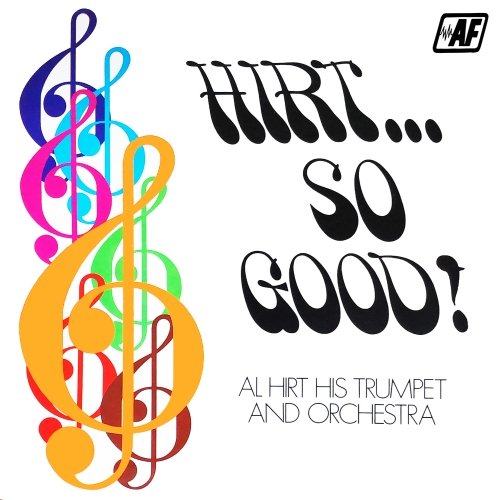
![John Coltrane Quartet - The John Coltrane Quartet Plays (1965/2026) [Hi-Res] John Coltrane Quartet - The John Coltrane Quartet Plays (1965/2026) [Hi-Res]](https://www.dibpic.com/uploads/posts/2026-01/1769712725_cover.jpg)
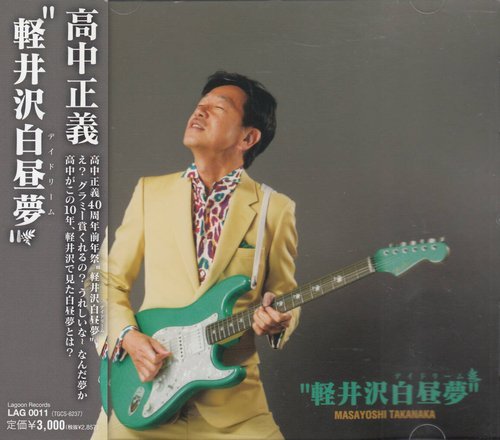
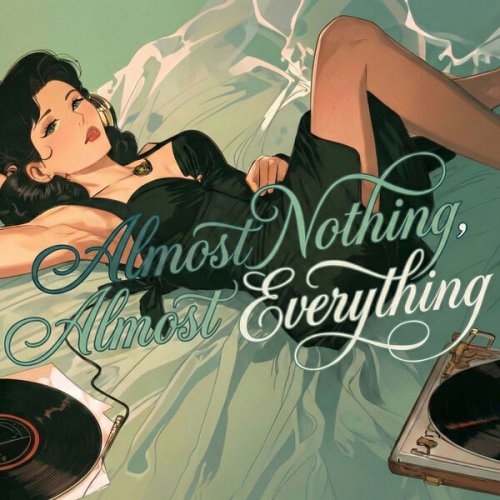
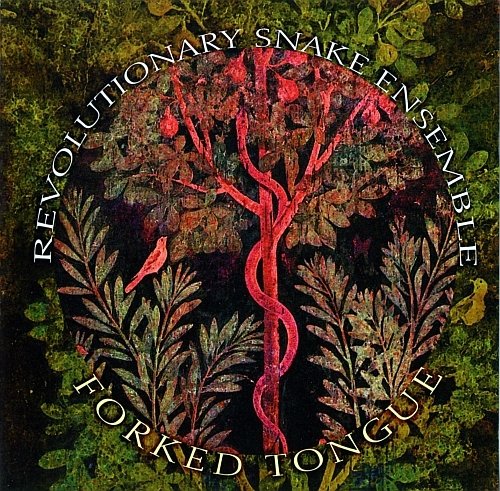
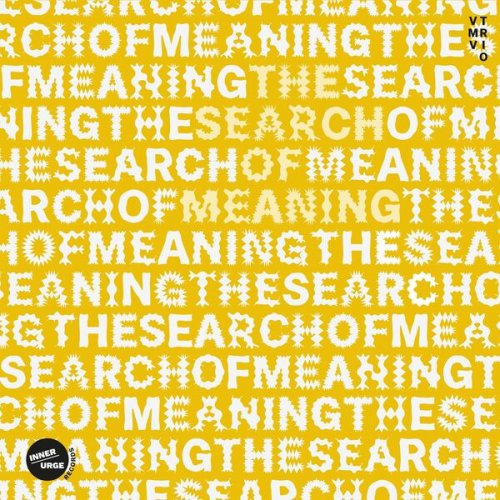
![Mari Boine - Goaskinviellja - Eagle Brother (Remastered 2025) (2026) [Hi-Res] Mari Boine - Goaskinviellja - Eagle Brother (Remastered 2025) (2026) [Hi-Res]](https://img.israbox.com/img/2026-01/31/so1zgdk2eva394qd3qtlyxfd2.jpg)
